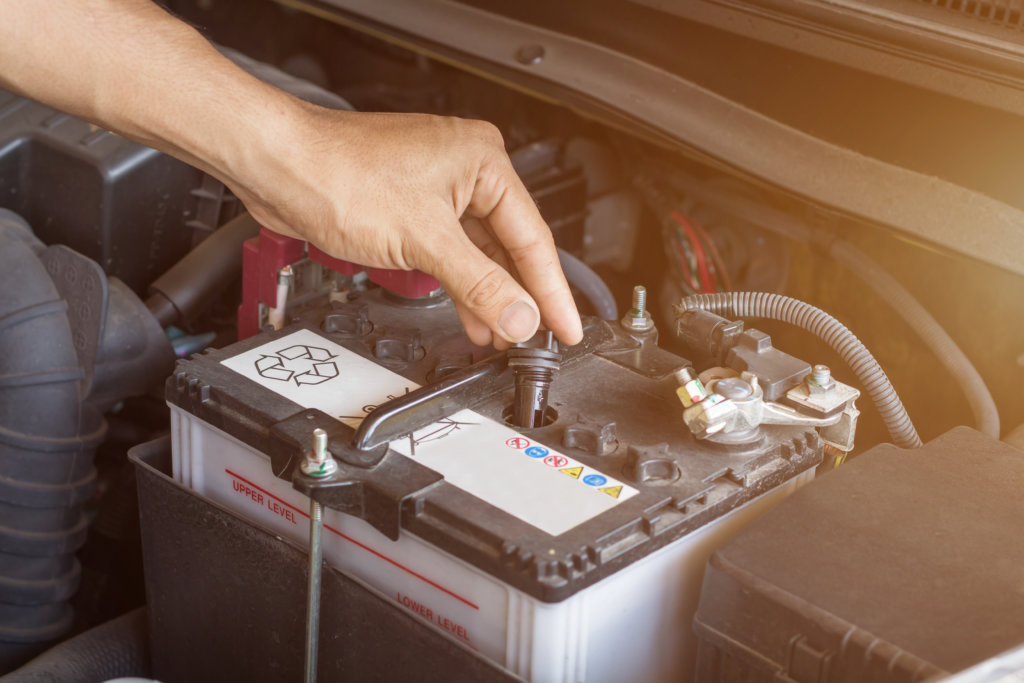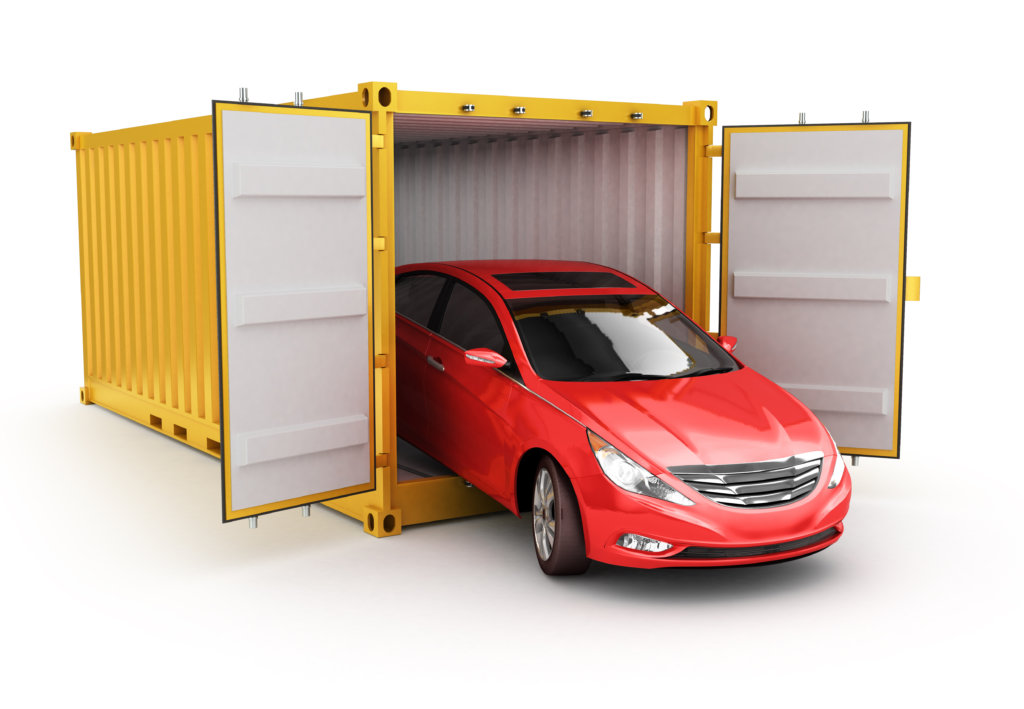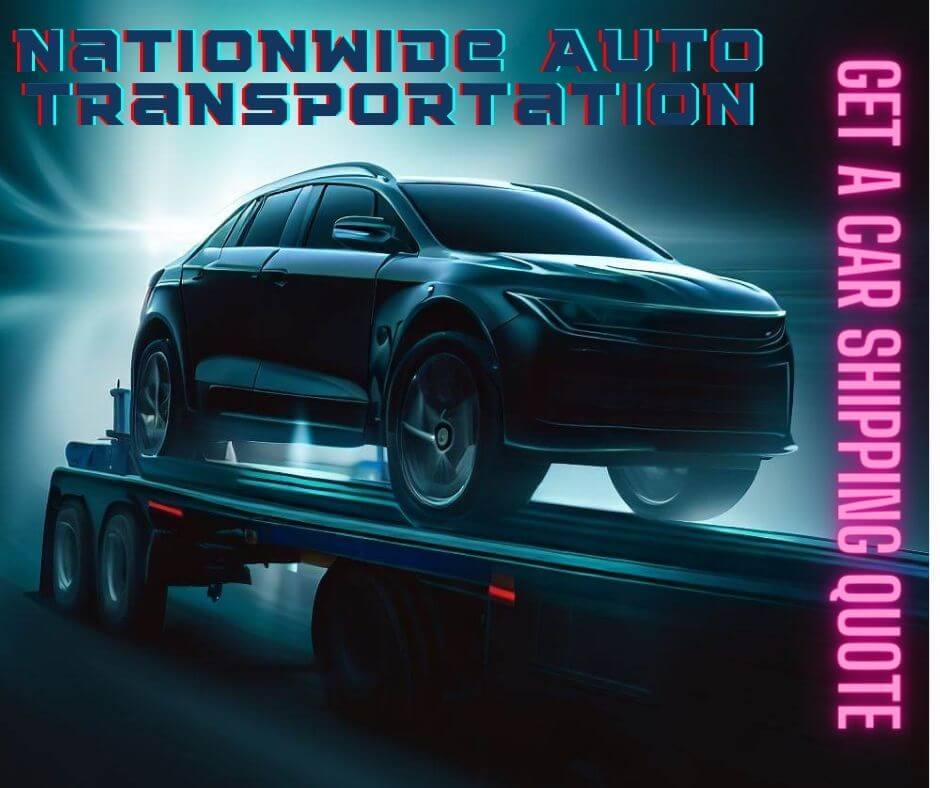
Reading Time: 12 minutes
Tips for Avoiding Delays in Vehicle Shipping | When You Can’t Afford the Time
- Are you planning to ship your vehicle to a new location?
- A cross-country move?
- Selling a car to a buyer in a different state?
It’s important that your vehicle arrives safely and on time. Shipping a vehicle can be a nerve-wracking process, but with proper planning and the right strategies, you can minimize delays! What’s priceless is the peace of mind knowing that your vehicle is in good hands.
In this article, we will provide you with valuable tips for avoiding delays in vehicle shipping. We’ll guide you through the process of choosing a reliable shipping company, preparing your vehicle for shipment, and understanding the shipping process. We’ll also discuss potential delays that you may encounter and how to deal with them effectively. Finally, we’ll cover the importance of communication with the shipping company and enjoying safe and secure delivery.
So, let’s get started! Are you ready to learn how to guarantee timely delivery of your vehicle during the shipping process?
Choosing a Reliable Vehicle Shipping Company

When it comes to shipping your vehicle, choosing a reliable shipping company is crucial to ensuring a smooth and hassle-free experience.
With so many companies out there, it’s important to do your research and find a company that you can trust to handle your vehicle with care.
Here are some tips to help you choose a reliable vehicle shipping company.
Researching and Comparing Shipping Companies
- Start by researching different shipping companies in your area or those that service your desired routes. Look for companies that specialize in vehicle shipping and have good reputations in the industry.
- Take the time to compare their services, prices, and customer reviews. Look for companies that have a track record of delivering vehicles on time and in good condition.
Checking for Proper Licensing and Insurance
- Before selecting a shipping company, make sure they are properly licensed and insured. Look for the U.S. Department of Transportation (DOT) number and the Motor Carrier (MC) number on their website or ask for them directly.
- Valid licensing and insurance are important factors that ensure the company meets the necessary standards and protects your vehicle throughout the shipping process.
Reading Customer Reviews and Ratings
- Customer reviews and ratings can provide valuable insights into the reliability and quality of service offered by a shipping company.
- Take the time to read reviews from past customers to get an idea of their experiences. Look for reviews that specifically mention the company’s communication, timeliness, and handling of vehicles.
“I found it very helpful to read customer reviews before choosing a vehicle shipping company. It gave me a better understanding of what to expect and helped me make a decision with confidence.” – Sarah, a satisfied customer
Thoroughly research and compare different shipping companies! Then, verify proper licensing and insurance. Read customer reviews and ratings to make an informed decision. This way, you can choose a reliable vehicle shipping company that guarantees the safe and timely delivery of your vehicle.
Shipping Recreational Vehicles | The Dos and Don’ts is a must read for outdoor enthusiasts.
Preparing Your Vehicle for Shipping
Embark on a journey through the robust world of RV transport with our latest piece on the unparalleled benefits of Lowboy Carrier RV Shipping. Your home-on-wheels deserves the safest passage, and we’ve laid out the ultimate roadmap for it. Dive in to discover how your RV adventures can begin on a note of absolute security!

When it comes to shipping your vehicle, proper preparation is key! Take some extra time to prepare your vehicle before shipping.
Doing this can help prevent any potential delays or complications along the way.
Here are some essential tips for preparing your vehicle for shipping.
Towing a Car to Another State vs. Auto Shipping: A Comprehensive Guide
Cleaning and Documenting the Vehicle’s Condition
Before handing over your vehicle to the shipping company, it’s crucial to give it a thorough clean, both inside and out. This is important for several reasons.
- Inspection. Cleaning your vehicle will make it easier to inspect for any existing damages or scratches before shipping. Take note of any pre-existing issues and document them with photographs. This will help you have a clear record of your vehicle’s condition before shipping and can be useful in case of any disputes.
- Avoiding Delays. A clean vehicle allows for a more efficient inspection process. It minimizes potential delays during the shipping process. This is because dirt and grime can make it difficult to thoroughly inspect the vehicle and assess any damages accurately.
Removing Personal Belongings and Custom Accessories
It’s essential to remove any personal belongings from your vehicle before shipping. The shipping company is not responsible for the loss or damage of any personal items left inside the vehicle. Additionally, removing custom accessories such as GPS devices, spoilers, or bike racks can help prevent them from getting damaged during transport.
- Safety. By removing personal belongings and accessories, you reduce the risk of theft or damage while your vehicle is in transit.
- Weight Restrictions. Shipping companies often have weight restrictions for vehicles. Removing unnecessary items can help ensure that your vehicle meets the weight requirements and avoids any additional fees or delays.
Checking Fluid Levels and Battery
Before shipping your vehicle, it’s crucial to check the fluid levels and ensure that your battery is in good condition.
- Prevent Damage. Checking fluid levels such as oil, brake, and coolant can help prevent any leaks during transport. A leaking vehicle can cause damage to other vehicles and may result in delays.
- Battery Life. Make sure that your vehicle’s battery is charged and in good condition. If the battery is weak or dead, it may not start upon delivery, causing unnecessary complications.
- Emergency Situations. Checking the fluid levels and battery ensures that your vehicle is in optimal condition. Just in case of any emergency situations during transport. It’s always better to be prepared!

Remember, proper preparation of your vehicle plays a vital role in a safe and efficient shipping process. Investing the time and effort to prepare your vehicle will help prevent delays. Furthermore, you reduce the risk of damage, and enjoy peace of mind throughout the shipping journey.
Understanding the Vehicle Shipping Process
When it comes to shipping your vehicle, it’s important to have a clear understanding of the process to enjoy a smooth and timely delivery. From selecting the right shipping method, to tracking your shipment, here are some key points to keep in mind!
No matter what state you’re shipping your vehicle from, we can assist. Let’s look at some reasons why people are moving out of California!
Selecting the Right Shipping Method
Choosing the right shipping method for your vehicle is crucial. There are two main options to consider:

Open Transport. This is the most common and cost-effective method. Your vehicle will be transported on an open trailer along with other vehicles.
While this is a safe option, your vehicle will be exposed to the elements during transit.
Enclosed Transport. If you have a classic or luxury vehicle that requires extra protection, enclosed transport is the way to go.
Your vehicle will be transported in an enclosed trailer, providing shelter from any potential damage caused by weather conditions or road debris.

Getting Familiar with Shipping Documents
Before shipping your vehicle, it’s essential to familiarize yourself with the necessary shipping documents. These documents include:

- Bill of Lading. This is a legal document that outlines the terms and conditions of the shipment. It serves as a receipt for your vehicle and should be carefully reviewed and signed upon pickup and delivery.
- Vehicle Inspection Report. This report documents the condition of your vehicle before and after shipping. Thoroughly inspect your vehicle. Note any existing damage before handing it over to the shipping company.
Federal Motor Carrier Safety Administration (FMCSA) – Check their website for safety regulations and resources related to vehicle transportation.
Tracking and Monitoring Your Shipment
Once your vehicle is en-route, it’s natural to feel a sense of anticipation and concern. Thankfully, most reputable vehicle shipping companies offer online tracking services. As noted, these allow you to monitor the progress of your shipment.
- Real-Time Updates. With online tracking, you can receive real-time updates on the location and status of your vehicle. This helps give you peace of mind and allows you to plan accordingly for the arrival of your vehicle.
- Communication. In addition to online tracking, it’s important to maintain regular communication with the shipping company. This way, you can address any concerns or questions you may have and stay informed about any potential delays or changes in the shipping schedule.
Remember, understanding the vehicle shipping process is key to preserving the condition of your vehicle and securing a smooth delivery.
The NAT Guide to Finding the Best Auto Shipping Company will get you on the right road! Are you a boat owner? This is for you: US Boat Transportation Regulations | Compliance Made Easy.
Dealing with Potential Delays
When it comes to vehicle shipping, delays can sometimes be inevitable. However, there are measures you can take to minimize these delays and ensure a smooth shipping process. In this section, we will discuss some common potential delays and how you can deal with them effectively.
Weather and Road Conditions
One of the main factors that can cause delays in vehicle shipping is adverse weather conditions. Heavy rains, snowstorms, or even extreme heat can impact transportation routes. Not only that, but it can slow down the delivery process. While you can’t control the weather, there are a few things you can do!
- Stay informed. Keep an eye on weather forecasts for both your pickup and delivery locations. This will give you an idea of any potential disruptions in the transportation process.
- Plan ahead. If you know that severe weather is expected in the near future, consider rescheduling your shipment to avoid any potential delays.
- Be patient. Sometimes, delays caused by weather conditions are unavoidable. In such cases, it’s important to remain patient and understanding.
- Your shipping company will do their best to navigate through these challenges and make sure your vehicle reaches its destination safely.

Transportation Supply and Demand
Another factor that can impact the timeliness of vehicle shipping is transportation supply and demand. During peak seasons or busy times, such as holidays, the demand for transporting vehicles may be high. This can lead to delays, as carriers may be overloaded with shipments.
To navigate potential delays caused by transportation supply and demand, keep the following in mind:
- Book in advance. If you know you will need to ship your vehicle during a busy season, try to book your shipment well in advance. This will give you a better chance of securing a spot with a reputable shipping company.
- Be flexible. Consider being flexible with your pickup and delivery dates. This will give your shipping company more flexibility in finding a suitable carrier. This can help you avoid longer wait times.
- Communicate with your shipping company. Stay in touch with your shipping company. Ask for regular updates on the status of your shipment. They will be able to provide you with more accurate information regarding any potential delays.
Properly Coordinating Pickup and Delivery
Efficient coordination between you, the shipping company, and the carrier is crucial to avoiding delays in vehicle shipping. Miscommunication or logistical issues can lead to unnecessary hold-ups. Here are a few tips to ensure smooth pickup and delivery.

- Provide accurate contact information: Make sure to provide correct and up-to-date contact information to the shipping company. This will make sure that they can reach you easily for any necessary updates or coordination.
- Stay in touch: Communication is key during the shipping process. Regularly check in with the shipping company and the carrier to get updates on the status of your shipment. If any delays occur, they will be able to inform you promptly.
- Plan for flexibility: Sometimes, unexpected delays can occur due to unforeseen circumstances. Being flexible with pickup and delivery dates can help you accommodate any last-minute changes and avoid unnecessary stress.
Remember, delays can happen! By taking these proactive steps, you can minimize the chances of them occurring and ensure a timely delivery of your vehicle. Stay informed, communicate effectively, and be patient, and your shipping experience will be smoother and more successful.
National Highway Traffic Safety Administration (NHTSA) – Learn more about vehicle safety standards and regulations on their website.
Communicating with the Shipping Company
When it comes to shipping your vehicle, effective communication with the shipping company is essential for a smooth and hassle-free experience. Clear and open lines of communication guarantees that both you and the shipping company are on the same page throughout the process. Here are some tips for effective communication with the shipping company.
- Provide accurate contact information. Make sure that you provide the shipping company with correct and up-to-date contact information. This includes your phone number, email address, and any other relevant details. Double-check the information you provide to avoid any communication barriers or delays.
- Stay in touch throughout the shipping process. Keep the lines of communication open by regularly reaching out to the shipping company. Stay informed about the status of your shipment and ask any questions you may have. A reliable shipping company should be responsive and provide timely
By effectively communicating with the shipping company, you can assure that any potential issues or concerns are addressed promptly. Remember, clear communication is key to a successful outcome.
“Communication works for those who work at it.” – John Powell
Ensuring Safe and Secure
Delivery

When it comes to vehicle shipping, guaranteeing the safe and secure delivery of your vehicle is of utmost importance. You want your vehicle to arrive at its destination in the same condition it was in when it was picked up. To help you achieve this, here are some tips to keep in mind!
Verifying Insurance Coverage
Before you entrust your vehicle to a shipping company, verify that they have proper insurance coverage. This will protect you in case of any damages that may occur during transit. Ask the shipping company for proof of insurance and make sure it includes comprehensive coverage for your vehicle.
Inspecting the Vehicle at Delivery
When your vehicle is delivered, take the time to thoroughly inspect it. Look for any damages or issues that may have occurred during the shipping process. If you notice anything out of the ordinary, document it with photographs and notes. This will serve as evidence if you need to file a claim with the shipping company.
Reporting any Damages or Issues
If you do find any damages or issues with your vehicle upon delivery, it’s important to report them to the shipping company as soon as possible. Contact their customer service department and provide them with the necessary details. Be sure to follow their specific instructions for filing a claim and provide all supporting documentation they may require.
Follow these steps for peace of mind knowing that your vehicle is in good hands. Rest assured that any potential issues will be addressed promptly.
U.S. Department of Transportation (DOT) – Visit their website for more information on licensing and regulations for vehicle shipping companies.
Ensuring the safe and secure delivery of your vehicle is essential. Taking the time to verify insurance coverage, inspect the vehicle at delivery, and report any damages or issues are crucial steps to protect your investment.
Wrapping it Up | Tips for Avoiding Delays in Vehicle Shipping
So, you want your car to get to its new place on time, right? Here’s how you do it:
- Pick the Right Shipper: Do your homework. Choose a car shipping company that’s reliable. Look at their reviews, make sure they’re licensed and insured.
- Get Your Car Ready: Clean your car and take some pics so you know exactly how it looked before shipping. Empty it of your stuff and check the fluids and battery.
- Know the Process: Choose how you want your car shipped. Learn a bit about the shipping papers, and keep an eye on where your car is during the journey.
- Heads Up for Delays: Sometimes, things like bad weather or busy roads can slow things down. Plan for that.
- Stay in Touch: Give the shipping company your correct contact details. Talk to them. If something bugs you, let them know.
- Check Your Car When It Arrives: When your car gets to you, look it over good. If something’s not right, tell them right away.
Do these things and your car should get to you just fine and on time. Easy, right?

If you’re in need of reliable and trustworthy vehicle shipping services, Nationwide Auto Transportation is here to help. With our seamless door-to-door service, we can transport cars, motorcycles, boats, RVs, SUVs, and more.
Get a free quote today at Nationwide Auto Transportation and experience our reliable and professional vehicle shipping services.
Frequently Asked Questions
- What are some common causes of delays in vehicle shipping?
Some common causes of delays in vehicle shipping include weather conditions, mechanical issues, traffic congestion, paperwork errors, and carrier scheduling conflicts.
- How can I avoid delays in vehicle shipping?
To avoid delays in vehicle shipping, you can follow these tips: 1. Plan ahead and book your shipment in advance, 2. Choose a reputable and reliable auto transport company, 3. Ensure your vehicle is in good working condition before shipping, 4. Provide accurate and complete information during the booking process, and 5. Stay in communication with the shipping company for updates and coordination.
- Is expedited shipping a good option to avoid delays?
Expedited shipping can be a good option to avoid delays if you need your vehicle to be delivered quickly. However, it may come at an additional cost. Discuss with your auto transport company to see if expedited shipping is available and feasible for your specific needs.
- What should I do if there are unexpected delays in vehicle shipping?
If you encounter unexpected delays in vehicle shipping, it’s important to stay in contact with the shipping company and communicate any concerns or issues. They can provide updates on the status of your shipment and help resolve any problems that arise.
- Are there any insurance options available for vehicle shipping delays?
Most auto transport companies offer insurance coverage for potential damages during transit, but insurance options specifically for delays may be limited. It’s best to consult with your chosen shipping company to understand their insurance policies and coverage in case of delays.



